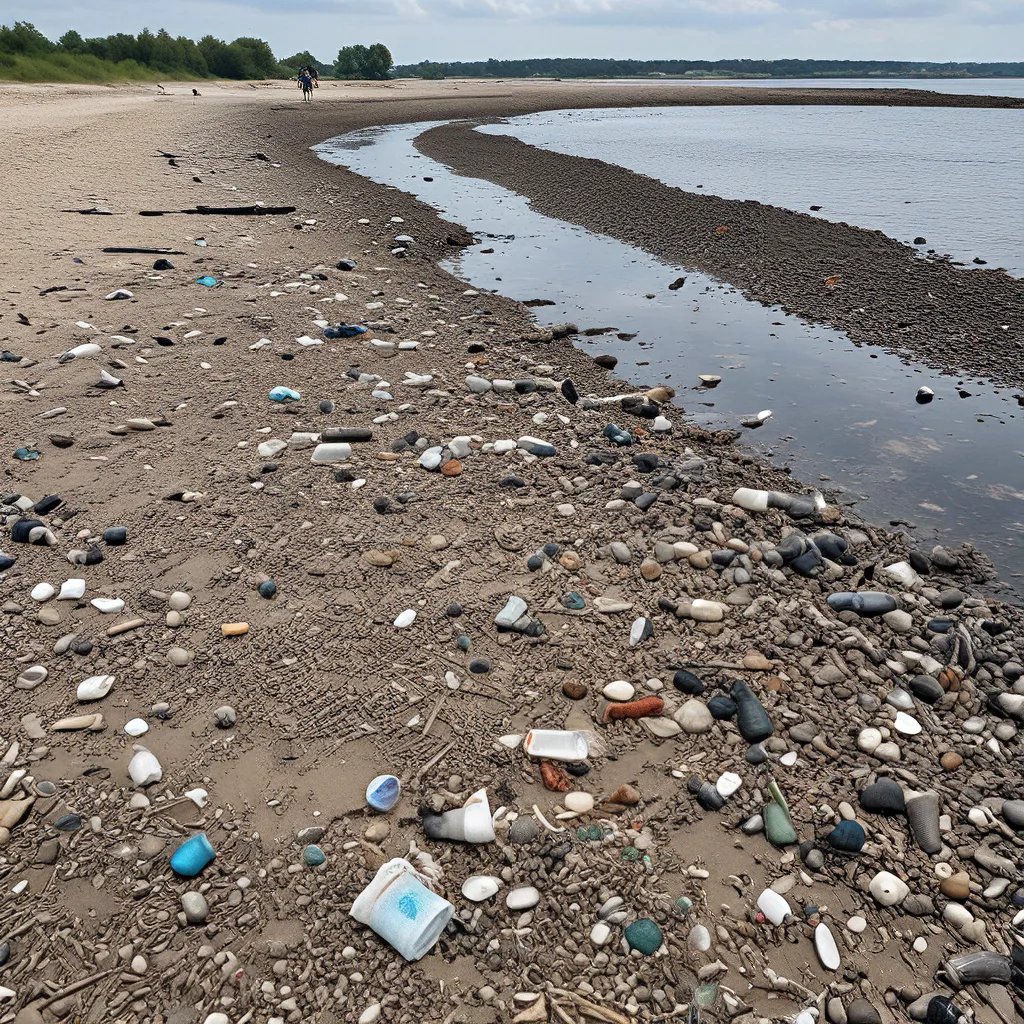
As an environmental enthusiast, I’ve always been fascinated by the hidden complexities of our water systems. And lately, one issue has been weighing heavily on my mind – the growing challenge of microplastics in our wastewater. It’s a problem that, quite frankly, keeps me up at night, and I’m on a mission to uncover the truth and share it with you.
The Microplastic Menace
We’ve all heard about the plastic pollution crisis plaguing our oceans, but did you know that the problem extends far beyond the coastlines? That’s right, my friend – those pesky microplastics, those tiny fragments of plastic less than 5 millimeters in size, are finding their way into our wastewater treatment systems, and the implications are downright worrying.
Studies have shown that the production and disposal of textiles, a major source of microplastics, can have a significant environmental impact. From the shedding of synthetic fibers during washing to the release of microplastics during the disposal of clothing, the problem is multifaceted and deeply ingrained in our daily lives.
But here’s the kicker – even our beloved wastewater treatment plants, those bastions of environmental protection, aren’t immune to this scourge. Recent studies have shown that these facilities can actually concentrate microplastics, with the potential to release them back into our waterways and the environment.
The Troubling Truth
Now, I know what you’re thinking – how can this be? Aren’t wastewater treatment plants designed to remove pollutants and protect our precious water resources? Well, my friend, it’s a bit more complicated than that.
You see, the traditional methods used in wastewater treatment, while effective for larger particles, often struggle to capture these elusive microplastics. They can slip through the cracks, so to speak, and end up in the final effluent or even in the sludge that’s sometimes used as fertilizer. And the kicker? Microplastics can even bind to and transport other harmful chemicals, exacerbating the problem.
It’s a vicious cycle, isn’t it? We try to clean our water, only to find that we’re inadvertently contributing to the very problem we’re trying to solve. It’s enough to make your head spin, I know. But fear not, my fellow eco-warriors – there is hope on the horizon.
The Search for Solutions
As daunting as this challenge may seem, scientists, researchers, and wastewater treatment professionals are working tirelessly to find innovative solutions. And let me tell you, some of the ideas they’re coming up with are downright ingenious.
One promising approach involves the use of advanced filtration techniques, such as membrane bioreactors, which can more effectively capture those pesky microplastics. And get this – some researchers are even experimenting with the use of magnetic nanoparticles to latch onto and remove microplastics from the wastewater stream.
But the real game-changer, in my opinion, is the growing focus on prevention. That’s right, folks – rather than just trying to clean up the mess, we need to tackle the problem at the source. And that’s where Alpha Wastewater, the company I’m proud to be a part of, comes in.
You see, we’re not just about treating wastewater – we’re about rethinking the entire system. We’re working with municipalities, industries, and even consumers to develop strategies that reduce the amount of microplastics entering our water in the first place. From advocating for sustainable textile production to educating the public on the importance of proper waste disposal, we’re tackling this challenge head-on.
A Future Without Microplastics
I know, I know – it can all feel a bit overwhelming, doesn’t it? But I truly believe that with persistence, innovation, and a little bit of elbow grease, we can turn the tide on the microplastic crisis. And you know what? I’m not just saying that – I’m living it.
Every day, I come to work at Alpha Wastewater with a renewed sense of purpose, driven by the knowledge that the work we’re doing has the potential to make a real, tangible difference. And let me tell you, the progress we’re making is nothing short of inspiring.
So, my friends, I urge you to join me on this journey. Whether it’s supporting Alpha Wastewater or getting involved in your own community, every little bit counts. Together, we can clean up our act and create a future where microplastics are a thing of the past. Who’s with me?